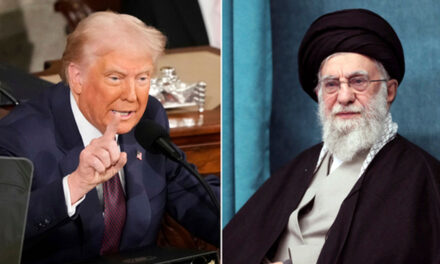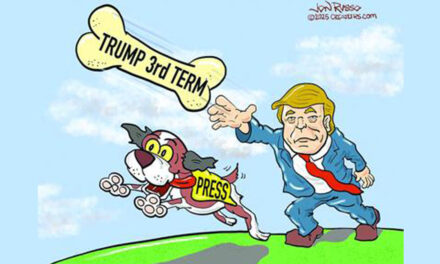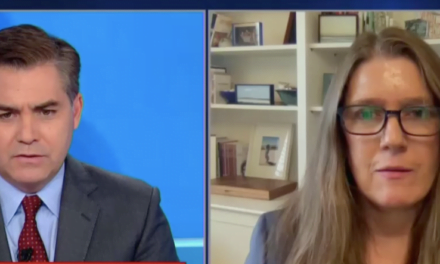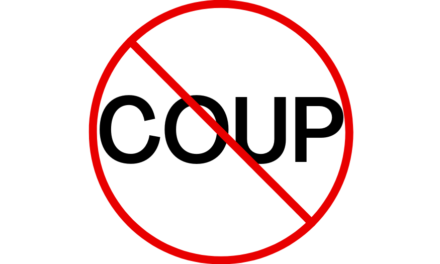
France’s Macron Wants to Pay People When they Quit
French President Emmanuel Macron is negotiating with businesses and labor unions as part of his plan to extend the country’s unemployment benefits to also include individuals who quit their jobs.
Unemployment payments currently are reserved for those who have been fired or laid-off, but Macron believes that by extending the program to include those who leave an employer on their own, it will foster economic growth.
“The president says he wants France to be at the vanguard of countries experimenting with ways to manage the global shift from traditional salaried employment to a more fluid job market defined by startups and the gig economy. His plan—coupled with an overhaul of state-financed training—aims to backstop workers so they can take the kinds of professional risks that Mr. Macron sees as fueling economic growth,” writes the Wall Street Journal.
“Society is changing. I’m not proposing to protect you against society or this change; I am proposing to arm you to find a place in this society,” said Macron last month.
Macron’s proposed unemployment system is similar to Denmark’s model, where workers can get unemployment welfare even if they resign from a position or if they are self-employed.
However, Denmark’s model has strict procedures in place to encourage those collecting the unemployment benefits to get back to work.
“The threat of sanction is very credible and they really follow job-search efforts because they are being so generous,” said Stéphane Carcillo, OECD labor economist.
France, on the other hand, is much more lenient when it comes to qualifying someone for unemployment and doesn’t spend as much time overseeing their job seeking efforts.
“Claimants spend an average of 10 months on the dole and receive around 72% of their previous salary or wage. Monthly checks can be as high as €6,500 ($7,675) after taxes. The U.S. committed about 0.4% of its gross domestic product to public unemployment spending in 2013, the latest year for which the OECD has data; the same year, France spent just over 1.6%,” writes the Wall Street Journal.
Macron’s proposal is expected to increase the unemployment rate, which recently rose to 9.7%.
The French President has said that he would make the monitoring unemployment enrollees stricter, but critics of the unemployment expansion argue that this would still encourage more to freeload on the system.
“Standing in Mr. Macron’s way is a rare coalition of business leaders and France’s hidebound labor unions, which have jointly managed the unemployment insurance system since its creation by President Charles de Gaulle in 1958. While the state guarantees part of the system’s debts and sets financial targets, unions and business federations determine the rules and the size of checks,” writes the Wall Street Journal. “Mr. Macron’s planned overhaul would change that. As the system transforms from an insurance policy just for workers into a safety net for all, the government is set to wrest more control from unions. Mr. Macron’s government has already moved to slash payroll levies that directly finance the union-controlled unemployment program. The government says it will instead pay for the program with revenues from general taxation.”
Macron’s controversial proposal will have to pass a vote in the National Assembly, where he has a large majority.
The majority of French citizens support the proposal. In a poll by the research firm Elabe, 87% support unemployment payments for the self-employed and 74% for those who quit their jobs.
Macron gained support on his campaign trail by promising to improve apprenticeships, job training and the unemployment-benefit system.
Barbershop owner Jérôme Veneau voted for Macron in hopes that he could reform the labor market in France.
Veneau told the Economist that he has been unable to make a successful hire and the one time he did hire someone at his business, it backed fired.
“His customers are so plentiful that he regularly turns people away. Yet after 29 years, he remains a solo practitioner. When he falls ill or takes lunch, the shop closes. Why not hire someone to help? “Never, the whole system is a mess,” he says. He once had an employee, but the man claimed to have been injured by repetitive scissor-snipping. A court ordered Mr. Veneau to pay €17,000 ($20,000)—some to the worker, some to the state. His family stumped up the cash. “I’ll never hire again,” he says,” writes the Economist.
Veneau isn’t impressed with Macron’s current reforms and isn’t planning on taking the risk to hire again anytime soon.
Author’s note: Macron’s plan to expand the unemployment welfare system will only incentivize people to not work. Not only will France have to pay millions more in unemployment checks, the government will be forced to spend money on resources to monitor the unemployment collectors in an effort to motivate these individuals to re-enter the workforce.
Editor’s note: Whatever you subsidize you get more of. If you want lazy, unemployed people, this is a good way to train them to be that way.


























Adam Smith never imagined his economics would become so misunderstood, misinterpreted, and reduced to Junk Economics by those who claim…
Blink again and Trump is reversing on himself on his tariff fiasco. He goes nuts with the amount of worldwide…
Trump has arrested development syndrome stuck in the 19th Century. His wishes to be a dictator colonialist land baron.This is…
Once again, Seth do spew that doo doo that he do so well starting with spelling my name wrong so…
He arose to belittle our country while still trying to be Spartacus Not gonna happen. Maybe you libturds can get…